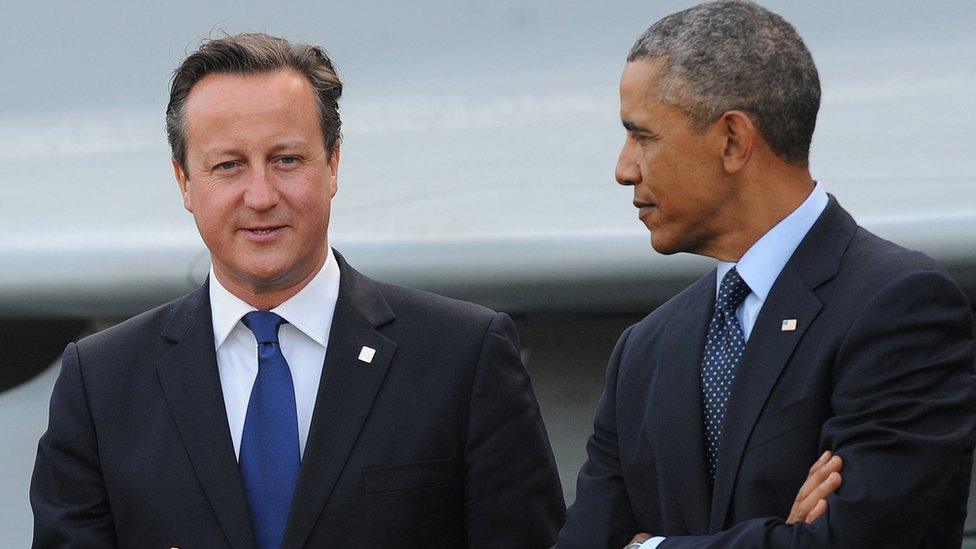Row erupts over Labour's defence 'underspend' claim
- Published

A war of words has erupted after Labour questioned whether the government would meet its target of spending 2% of GDP on defence.
Labour said it had discovered an £800m dip in spending in Budget papers.
But a defence minister said Labour had got its sums wrong - overall spending had not gone down but money had moved from one part of its budget to another.
Labour has written to Defence Secretary Michael Fallon to seek assurances he is committed to Nato's spending target.
Shadow defence minister Toby Perkins asked about the effect of the apparent cut to spending "on our already stretched ability to respond to demands that our government places on our armed forces".
But Philip Dunne, Minister for Defence Procurement, said: "Labour have made two fundamental errors.
"Firstly, they have used the figures from the March 2015 Budget instead of the July 2015 Budget that followed the election. Secondly, they failed to include capital spending.
"The defence budget in the July 2015 Budget was £34.9bn and latest estimates are higher than that at £35.2bn.
"Thankfully, when they get the numbers wrong now, it doesn't cause the damage it did when they ran the country."
'New normality'
Labour stuck to its claim that the government was spending less on defence than a year ago.
Mr Perkins said: "Even if you combine the capital and current spending projections of the Budget 2016 and compare them with the next most recent budget, given at the Autumn Statement, there is still a shortfall of £200m.
"The government claim it is an 'underspend', but it is clear that this is actually the new normality that Britain's armed forces will be forced to deal with over the next few years."
The UK is currently one of only five Nato members, along with the US, Estonia, Greece and Poland, to meet the alliance's budget target - which recommends that a minimum 2% of a country's GDP be spent on defence.
Before last year's general election, David Cameron would not be drawn on whether the UK would continue to meet the target in the next few years given the scale of the public spending cuts earmarked to eliminate the deficit.
But in his July Budget, Chancellor George Osborne said the UK would meet the Nato pledge on a "properly measured" basis and said overall spending on defence would be ring-fenced, getting a real terms 0.5% annual increase in its budget every year until 2020.
US President Barack Obama was reported, external to have warned Mr Cameron that the UK would have to pay its "fair share" and spend 2% of GDP on defence.
- Published11 March 2016

- Published8 July 2015

- Published10 July 2015
